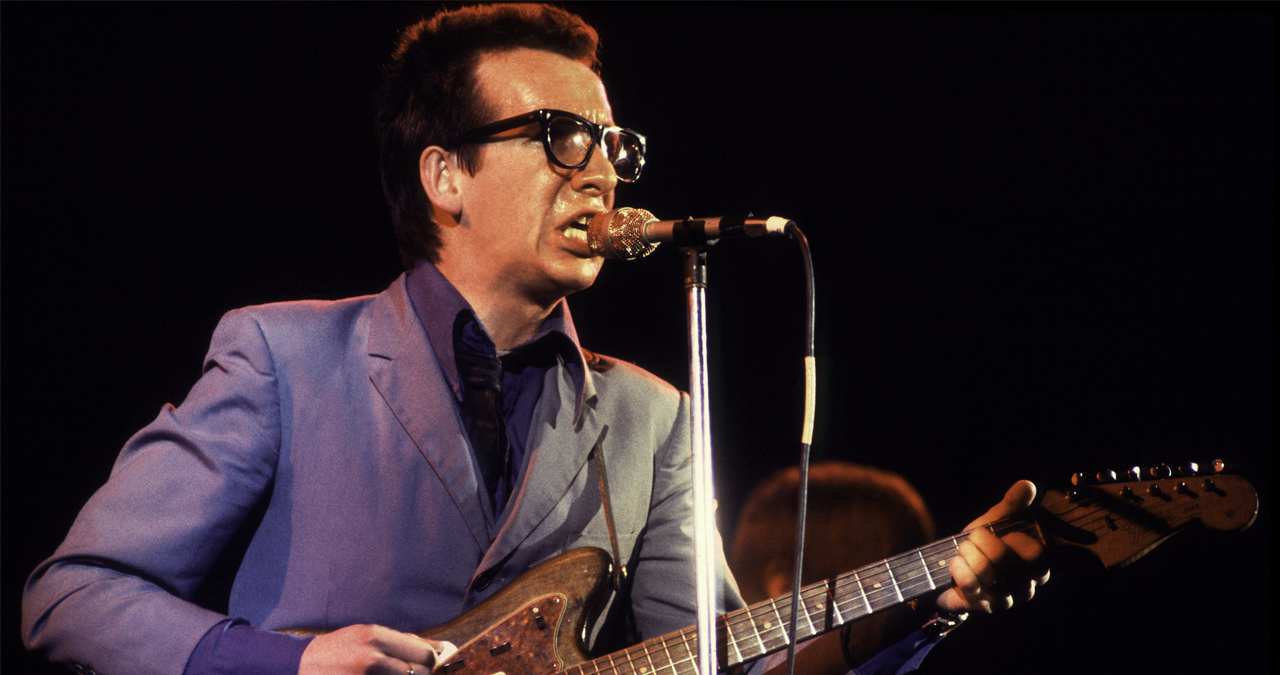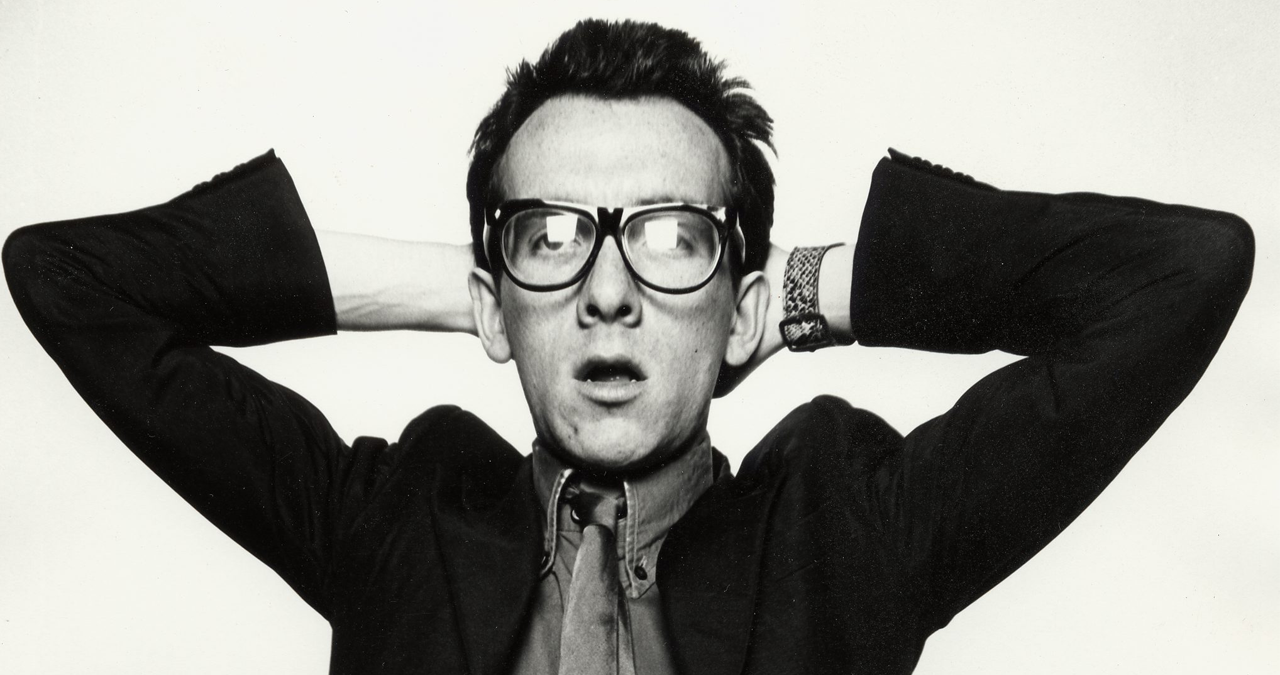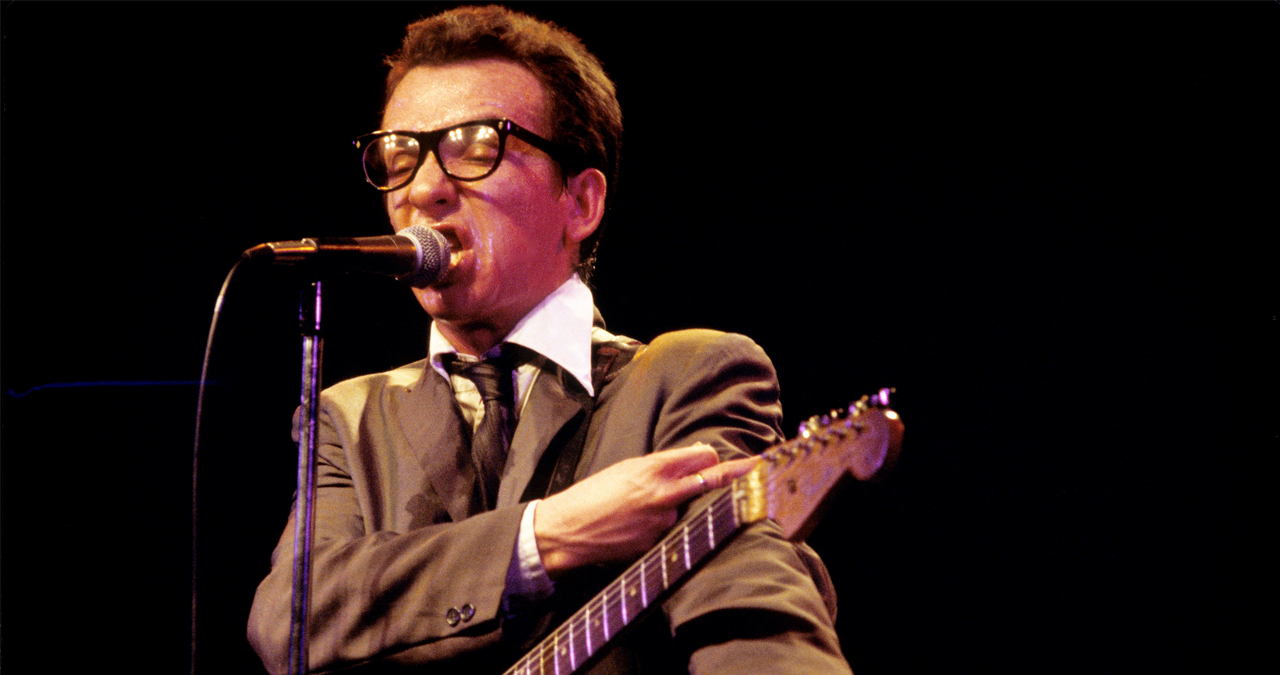
Saturday Night Live has been a US television institution since it began in 1975. It has spawned generations of comedy talent and spotlighted musicians on the rise to an audience of millions. Yet the show has not been without its controversies…
One of our favourites was the time that the legendary Elvis Costello - then a 23 year-old, who'd begun to make a name as a lyrically forceful punk firebrand - stunned viewers (and SNL head-honcho Lorne Michaels), when he abandoned playing his debut single, Less Than Zero live on air and chose to launch into the far more intense Radio, Radio.
The startling move kept Costello from appearing on the show again for a further 12 years.
Less Than Zero had been released in March of 1977 and was a poetic response to an interview Costello had watched with former British Union of Fascists leader, Oswald Mosley. Costello was disgusted by Mosley’s unrepentant, far-right views.
He housed a snarling, but considered, riposte in a slower-paced arrangement.

Elvis was hastily booked to appear on the December 17th 1977 edition of Saturday Night Live, following the unexpected pulling-out of the Sex Pistols due to Visa complications.
Iconic Pistols' manager Malcolm McLaren recommended Costello and his band, The Attractions step in, which was promptly agreed by all parties.
Costello was excited - viewing the opportunity as something akin to the Beatles' appearing on the Ed Sullivan show in 1964. A platform with which he could be heard by millions.
For the show, he was asked to perform two songs, Less Than Zero and his recent single, Watching the Detectives.
But Elvis was unsure.
He felt that the very specific target of Less Than Zero wouldn’t resonate with the US audience of Saturday Night Live.
Also fearing that the song’s slower tempo would not be a true reflection of his furious punk credentials, Costello hatched a plan.
“In the dress rehearsal, we did a song that was on my first album. But I thought it sounded a little too slow,” Costello said in the Ladies & Gentlemen… 50 Years of SNL Music documentary. “It was a medium-tempo song, and I didn’t think it was enough.”
Inspired by a similar impromptu song switch up by Jimi Hendrix back on the BBC in 1969, Costello got excited at the prospect of exhibiting some punk audacity - “This show is live. We can do anything we want,” Costello recalled saying to his band.
Once the live show began, the band began playing the opening verse of Less Than Zero, as planned. But then - waving his hands with a certain anarchic energy - Costello called his band to a halt.
The bespectacled Costello addressed the audience: “I’m sorry ladies and gentleman,” he said. “There’s no reason to do this song here.”
The Attractions then switched up the energy in a big way and tore into the rapid momentum of Radio, Radio.
This more nimble, spikier track took aim at the commercialisation and censorship of the BBC and was driven with a punk vigour.
The SNL crew were stunned as their tightly-planned show took a different shape to the one planned.
As reported over on NBC.com, an original cast member, Jane Curtin, recalled that mouths were agape behind the scenes:
“When he stopped, the hubbub in the studio was like, ‘Oh my god. Oh my god, what’s happening?’ You could hear it.”

According to some reports, Lorne Michaels (SNL’s characterful creator) was so enraged with Costello for the stunt, that he spent the entire duration of the song with a middle finger raised.
Though Costello didn’t appear on the show again for 12 years, NBC have since stated he was never formally banned - though Michaels was clearly reticent about having him back on.
The appearance has since become legendary, and Costello even hilariously re-enacted it for SNL’s 25th anniversary special in 1995 - storming in and hijacking the Beastie Boys performance of Sabotage with - you guessed it - an incredible rendition of Radio, Radio.
“I just wanted them to remember us. I didn’t really have anything against the show,” Costello told Zane Lowe in 2021.“[It was more] being told what to play by the record company than I was NBC, truthfully. I can’t remember whether I said what I was going to do, but I think I just said, ‘Watch me.'”







